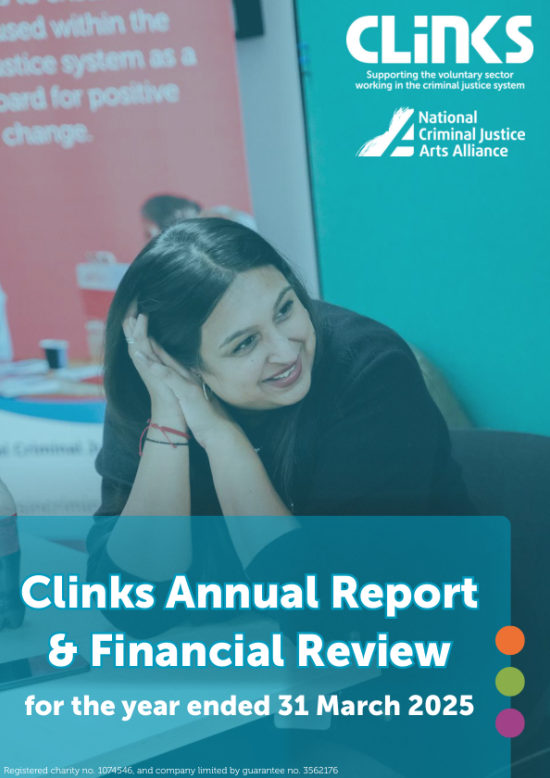Tackling homelessness among people leaving prison
Given the specificity of the issue, it is no surprise that the manifestos were light on solutions to tackle homelessness among people leaving prison. That being said, for whoever the next Government is, success in tackling homelessness more broadly will only be possible by eradicating the issue among people leaving prison. And here, the issue remains prevalent. In the year to March 2023, the proportion of people (on release from prison) known to be housed is 86.3%, a figure that drops to 75.5% three months later. The impact of this is measurable via the Ministry of Justice’s own statistics, which state that access to stable accommodation reduces a person’s likelihood of reoffending by approximately 50%. Clearly, with an annual reoffending bill of £18 billion, it should be a priority for the next government to prioritise solutions designed to help people leaving prison into stable accommodation.
Conservatives
All the main parties have included in their manifestos a range of policies focused on building more housing and tackling homelessness. The Conservatives have pledged to ‘continue’ with its plans to ‘end rough sleeping and prevent people from ending up on the streets in the first place’. To achieve this, they are committing to ‘renewing’ their Affordable Homes Programme, delivering 1.6 million homes and pass a Renters Reform Bill which would include an end to no-fault evictions. The commitment to ending no fault evictions has been widely welcomed by the voluntary sector working in both housing and the criminal justice sector, and there was disappointment at the backend of the last Parliament when legislation on this issue fell by the wayside. There are also further commitments to introduce ‘UK and Local Connection tests’ related to the allocation of social housing. Given the changes and exemptions that are being explored to the local connection test in Wales, it is disappointing that the Conservatives are considering proposals that likely increase the layers of bureaucracy in accessing social housing, rather than reducing the barriers for people in contact with the justice system to access local authority accommodation.
Labour
Labour, if elected as the new government, has committed to a cross-government strategy to end homelessness, supported by what it calls ‘the biggest increase in affordable and social housing in a generation’ – namely through a promise to build 1.5 million new homes over the next parliament. Labour has committed to driving through planning reforms, ensuring that ‘planning authorities have up-to-date Local Plans’, while restoring ‘mandatory housing targets’. Labour will also ‘make full use of intervention powers’ to override local objections to any new housebuilding.
Liberal Democrats
The Liberal Democrats’ go into quite a bit of detail in their plans on housing and homelessness. Their headline housing pledge is to ensure that ‘everyone can access housing that meets their needs’, including through ‘meaningful community engagement’, alongside pledges to build ten new garden cities and to introduce a new Rent to Own model for social housing giving ‘tenants an increasing stake in the property, owning it outright in 30 years’.
On homelessness, the headline pledge is to end rough sleeping within the next Parliament by ‘urgently publishing a cross-Whitehall plan to end all forms of homelessness’. Additionally, they would introduce a ‘somewhere safe to stay’ legal duty, so that ‘everyone who is at risk of sleeping rough is provided with emergency accommodation and an assessment of their needs’. They would also exempt groups of homeless people from the Shared Accommodation Rate and ensure ‘sufficient financial resources for local authorities to deliver the Homelessness Reduction Act and provide accommodation for survivors of domestic abuse’.
Green Party
The Greens have committed to increasing the number of social homes available each year through building, refurbishment, and ending the individual ‘right to buy’. They also said they would push for rent controls that can be used by local authorities should the market become unaffordable for local people, and for a new stable rental tenancy coupled with an end to ‘no fault’ evictions to help tenants be secure in their homes.
Reform UK
Reform’s commitments around housing and accommodation include changing the rules around social housing so local people and ‘those who have paid into the system’ are prioritised, whilst people who are foreign nationals would be deprioritised. In addition, Reform said they would abandon the Renters (Reform) Bill, arguing it was inadequate to address poor practices, instead preferring to increase monitoring, appeals, and enforcement processes to support renters with grievances.
Plaid Cymru
Plaid’s manifesto included a commitment to look to end homelessness using the Housing First model along with rapid rehousing. They also proposed the introduction of a ‘Right to Adequate Housing Bill’ which would include powers to introduce rent controls and other market interventions to make housing more affordable. Moreover, the party argue that Local Housing Allowance, which supports people in receipt of some benefits to access private rented housing, should be kept at the 30th percentile of market rents in each local area.
The barriers to accessing accommodation for people leaving prison
As part of the work of the Reducing Reoffending Third Sector Advisory Group (RR3), a Special Interest Group (SIG) was set up to explore the barriers to accessing accommodation faced by people leaving prison. The group has now published three reports: covering the challenges in accessing local authority accommodation; the private rented sector; and housing-related support.
The group found that the challenges begin as soon as someone enters custody, with limited work done to help people in prison to maintain tenancies. At the end of a custodial sentence, delays to resettlement planning and patchy engagement from local authorities with people in prison further exacerbated the barriers to effective resettlement. There was general unanimity among SIG participants that early engagement with people in prison, over a longer timeframe than is currently the case, is essential to improving resettlement outcomes.
This is in addition to wider societal challenges, such as the general shortage of affordable housing, whether that is social housing or in the private rented sector. The private rented sector has become particularly inaccessible for people leaving prison given rising rental prices and the fact that many people leaving prison already face significant financial insecurity. This insecurity has been increased due to a near four-year freeze on Local Housing Allowance (LHA) rates and a reluctance from private landlords to let to people with criminal records. The result is a diminishing pool of properties that are realistically attainable for people leaving prison.
The barriers are just as significant when exploring the process of accessing local authority accommodation, which is predominantly governed by the application of the Homelessness Reduction Act 2017. This legislation sets out the duties and obligations of statutory bodies, including prisons, the probation service and local authorities, as well as detailing eligibility criteria for housing.
When assessing a person’s application for support, the local authority will need to decide whether that person is deemed as having a priority need. The Homelessness guide for local authorities explains that ‘a person who is vulnerable as a result of having served a custodial sentence or remanded in custody has a priority need for accommodation’. Each person does need to demonstrate that they are vulnerable as a result of the time they have spent in prison, yet the group heard that an increasing number of people, recently released from prison, are being told that they do not meet this vulnerability threshold. The result has been a reported increase, from voluntary organisations supporting people coming out of prison, in people being rejected as having priority need.
Further reading
This blog is simply a snapshot of the issues faced by people leaving prison. For further information read the three reports published by the special interest group.
Contained within those reports are a range of practical, realistic recommendations, developed in consultation with voluntary sector organisations working in this area, designed to mitigate the issue of homelessness among people leaving prison. They include reforms to existing processes within prisons, such as mandating the establishment of multi-agency resettlement support panels in every resettlement prison in order to create a longer timeframe ahead of release within which a range of stakeholders can work with people in prison. They also include proposals to scale up existing funding schemes to ensure universal coverage, such as the Accommodation for Ex-Offenders Scheme which supports people into the private rented sector. These are proposals that can form part of the response to this issue which, for any new Government, needs to be prioritised in order to achieve success in eradicating homelessness.
Image credit: Clinks conference 2023 - Ian Cuthbert
What's new
Latest on X
The role is for a leader from an organisation focused on racially minoritised people, with expertise in service delivery, policy, advocacy, or related areas in criminal justice. Racial disparities are present at every CJS stage. This role ensures these voices are central in shaping policy to help address and eradicate them. Apply by Mon 18 Nov, 10am. More info: https://www.clinks.org/voluntary-community-sector/vacancies/15566 #CriminalJustice #RR3 #RacialEquity

